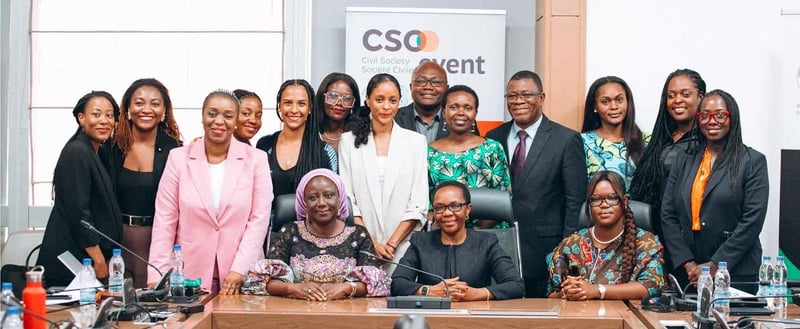The African Development Bank has managed to take Tunisia’s economy a notch higher by approving crucial financing of €92.3 million. This investment is reserved for the implementation of Scholar Nation’s Support Program for Business Competitiveness and the Empowerment of the Population through Job Creation, CAP-Emplois program. The Program is conceived as a strategic program by the Ministry of Employment and Vocational Training of Tunisia, highly supported by the AfDB, in order to stimulate job creation, improve living standards, and promote economic inclusion through the development of entrepreneurship and the enhancement of key competence at the level of the population.
The overall AfDB financing package comprises €90 million from the Bank Group and a €2.3 million grant from the Women Entrepreneurs Finance Initiative (We-Fi) Trust Fund housed under the Affirmative Finance Action for Women in Africa, AFAWA. This blend of a loan-grant is ripe and ready to create a breakthrough in the economy of Tunisia, especially when it comes to acting out all the structural challenges that have over time continued to stand as barriers to the growth and sustainability in the country.
Entrepreneurship, in reality, calls for an entrepreneurial change in Tunisia, because over time, challenges have never been good to the country’s attempt at job creation and economic growth. Indeed, the AfDB survey in Tunisia revealed a number of structural constraints facing existing and potential informal sector entrepreneurs. These include poor access to markets, especially for the informal businesses; the inability to hire appropriate-skilled employees; and the lack of crucial business support services and finance access. These constraints, taken all together, have cumulatively had the effect of holding back investment projects, reducing productivity, and generally stunting growth.
In this respect, the CAP-Emplois program has been designed in light of these facts and utilizes a multi-faceted approach that will break down barriers that have long plagued the achievement of success within Tunisia. The program shall gradually be invested in over a period of four years starting in November 2024 by building up an environment entailing entrepreneurship that should allow for new establishments, growth, and formalization of existing businesses.
One of the central pillars of the CAP-Emplois is the training of the program as an approach to complementary integration, in providing possibilities and means to make active job seek youths and women fit with the skills that they would require in employment. The training will bridge not only the gap existing in the skills of the Tunisian labor market but will also inculcate the empowerment to the ability to contribute to the economy. By it, also, the wider global objectives on ensuring gender equality and empowering marginalized groups are met.
Apart from the training, the program is completed by a line of support service to entrepreneurship: the project Souk At Tanmia 2.0. This resulted from the first Souk At-Tanmia project and is a new way to support Tunisian entrepreneurs. Souk At Tanmia 2.0: This will seek to extend support targeted to the specific needs of a variety of target groups, and more particularly women, with added complications in history that have generally been posed to them regarding entrepreneurship. The programme makes the women equipped with such tools, resources, and guidance that will be able to counter the challenges faced, and help them establish, formalize, and grow businesses.
Another big area that the CAP-Emplois program addresses is that of institutional capacity building. It endeavors to make things easier for entrepreneurs so that both the general context under which the entrepreneur in Tunisia works and manages his business may be more accommodating to the entrepreneur in such a manner that he can go through the administrative track in a more timely fashion, can access the necessary financial resources, and tap into the market. One can create a better environment for entrepreneurs through institutional capacity development; it will facilitate sustainable business and general economic growth.
Although the total potential cost of Csp-Emplois program is large, the Tunisian government, through its elaborated website, evaluated the program as potentially creating 118,900 formal jobs, with 76,600 being the portion of direct jobs and 42,300 the portion of indirect jobs. For Tunisia, suffering from high rates of unemployment, particularly for the young and women’s genres, this remains one of the essential services that the program potentially created by adding so many job opportunities for the country.

Great importance is also attached to ensuring that women access the opportunities provided by the program, with the Tunisian government having raised and pursed ambitious targets: for at least 50% of the entrepreneurs trained and supported in their professional integration to be women and, through the measures of setting up, formalizing, and financing, 45% of the businesses that will be assisted will be directed by women. Another example is a grant from the We-Fi fund under the AFAWA initiative that assists in the reduction of loan initiation fees for businesses owned by women. This grant will also raise the percentage of women beneficiaries in the entrepreneur portfolio from the current rate of 35% to 45%.
CAP-Emplois is a further move in the AfDB’s longstanding commitment to promoting employment and economic development in Tunisia. “The program builds on the lessons learned from previous initiatives, such as the original Souk At-Tanmia project, and operational innovations developed since then through the EInA platform, which proved invaluable for improving the entrepreneurship support and job-creation approach,” said Malinne Blomberg, Deputy Director General of the AfDB for North Africa and Country Manager for Tunisia.
The CAP-Emplois was detailed in a way through which it could overcome the most common constraints to the growth and financial sustainability of businesses in Tunisia. In so doing, it helps sectors to better flourish and thereby add to general economic development. In particular, the program will seek to mobilize private investment, looking at sustainable economic development by both the public and the private sector.
Private investment has great potential in Tunisia but used to be obstructed by structural weaknesses—the same weaknesses that the program CAP-Emplois is aimed at combating. By creating an entrepreneurship-friendly environment, the program wants to unlock this potential, therefore attracting private capital that can be re-invested back and increase business growth and job creation. This is in line with global best practices in economic development, which guide that fostering a supportive environment for private sector-led growth forms the core of the development strategy.
The impact of the CAP-Emplois program goes beyond just the economic realm. With targeting job creation and entrepreneurship, the program touches some of the important root causes for the social unrest and economic inequality within the country. The associated rate of unemployment, especially among the youth, has been a very strong force that ignites social tension in the country; in this respect, the CAP-Emplois program is a proactive effort in addressing such issues. After all, the program seeks to equip young people in ways that enable them to gain access to the labor market, thus building a more stable and prosperous society.
The emphasis on women through the program relates to broader efforts by Tunisia to advance gender equality. This realization is helping the government of Tunisia and the AfDB send the strongest signal about the need for gender inclusion in the development of the economy. More than just a matter of social justice, such a focus on women is good economic practice, with many studies indicating that empowering women leads to important economic gains.
In conclusion, the program of CAP-Emplois is considered quite innovative, given that it tries to address the most urgent problems in the economic dimension for Tunisia. Targeting job creation, entrepreneurship, and the development of skills, this program seeks to realize a more inclusive and prosperous society. The AfDB approving the important financial envelope, with a strategic dimension, involving women and lessons learned from the past programs, CAP-Emplois is hence one of the strategic levers in the making of Tunisia’s economic future. Backed by the AfDB and the Government of Tunisia, the project would change the economic status quo for thousands in the country by providing new opportunities and would contribute to a broader regional stability and development.
SOURCES
- https://www.afdb.org/en/news-and-events/press-releases/tunisia-african-development-bank-mobilises-over-92-million-euros-support-entrepreneurship-and-job-creation-73433
- https://www.cnbcafrica.com/wire/646958/




